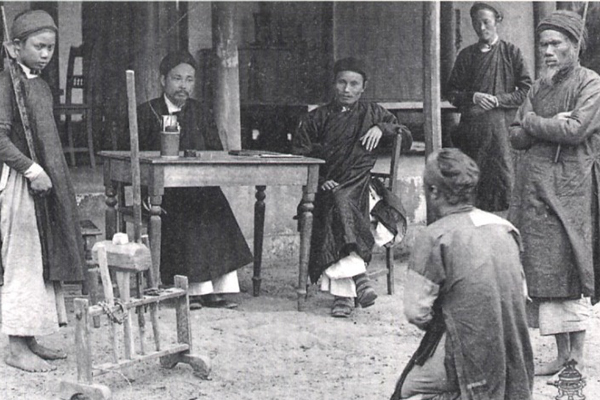Social standing in the traditional village was based on titles obtained in the civil-service examination system, honorific titles, functions, level of education and age. The highest ranks were local dignitaries (chức sắc): laureates of the civil- service examinations, people with honorary titles, sons of mandarins or civil servants, and employees of the royal or colonial government having a honorific grade (phẩm hàm). If the first village notable (tiên chỉ) was a bachelor, he would outrank a district mandarin who was devoid of an academic title.

Next came ordinary civil servants (chức dịch), including the village chief and elders, village watchmen (trương tuần), and then those who purchased titles of the lowest grade (nhiêu and xã). Promising candidates for civil-service examinations, who had passed a pre- exam text, would rank next, followed by older men (lão hạng) of 50 and above. Those who were 60 years old and above were awarded particular distinctions. Villagers without title (bạch đinh) from the age of 18 to 49 ranked last. Any villager could buy the titles of nhiêu or xã by donating a sum of money to the public works budget, such as the construction of a market, a communal house, or a road. In return, the title holder would be exempt from communal labor.



